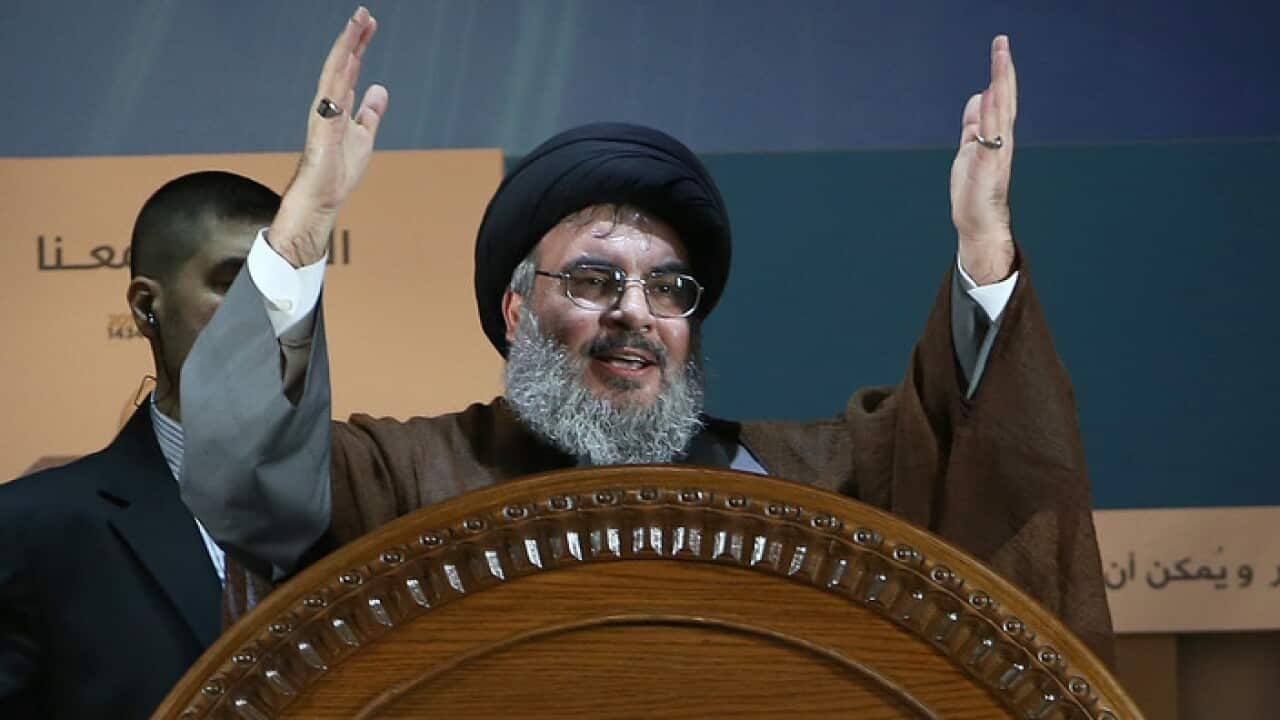Sayyed Hassan Nasrallah, leader of the Lebanese militant group Hezbollah, has been killed, according to Israel’s military.
Nasrallah, whose death has not been confirmed by Hezbollah, led the group through decades of conflict with Israel, overseeing its transformation into a military force with sway in the Middle East and becoming one of the most prominent Arab figures in generations.
Israel’s military claims he was killed during a strike on Lebanon’s capital, Beirut, between Hezbollah and Israel.
Nasrallah became secretary general of Hezbollah in 1992 at 35, the public face of the .
Israel killed his predecessor, Sayyed Abbas al-Musawi, in a helicopter attack, and Nasrallah led Hezbollah when its guerrillas finally drove Israeli forces from southern Lebanon in 2000, ending an 18-year occupation.
Conflict with Israel has largely defined his leadership.
He declared “Divine Victory” in 2006 after Hezbollah waged 34 days of war with Israel, winning the respect of many ordinary Arabs who had grown up watching Israel defeat their armies.
But he became an increasingly divisive figure in Lebanon and the wider Arab world as Hezbollah’s area of operations widened to Syria and beyond, reflecting an intensifying conflict between Shi’ite Iran and United States-allied Sunni Arab monarchies in the Gulf.
While Nasrallah painted Hezbollah’s engagement in Syria — where it fought in support of President Bashar al-Assad during the civil war — as a campaign against jihadists, critics accused the group of becoming part of a regional sectarian conflict.
Domestically, Nasrallah’s critics said Hezbollah’s regional adventurism imposed an unbearable price on Lebanon, leading once-friendly Gulf Arabs to shun the country, a factor that contributed to its 2019 financial collapse.
In the years following the 2006 war, Nasrallah walked a tightrope over a new conflict with Israel, hoarding Iranian rockets to form a deterrent “balance of terror” in a carefully measured contest of threat and counter threat.
, ignited by the , prompted Hezbollah’s worst conflict with Israel since 2006, leading to the deaths of hundreds of its fighters including top commanders.
After years of entanglements elsewhere, the conflict put renewed focus on Hezbollah’s historic struggle with Israel.
“We are here paying the price for our front of support for Gaza, and for the Palestinian people, and our adoption of the Palestinian cause,” Nasrallah said in a speech on 1 August.
What was Nasrallah’s background?
Nasrallah grew up in Beirut’s impoverished Karantina district. His family hail from Bazouriyeh, a village in the Lebanon’s predominantly Shi’ite south which today forms Hezbollah’s political heartland.
He is part of a generation of young Lebanese Shi’ites whose political outlook was shaped by Iran’s 1979 Islamic Revolution.
Before leading the group, he used to spend nights with frontline guerrillas fighting Israel’s occupying army. His teenage son, Hadi, died in battle in 1997, a loss that gives him legitimacy among his core Shi’ite constituency in Lebanon.
Then Iranian President Mohammed Khatami, right, meets with Sheikh Hassan Nasrallah, Secretary General of Hezbollah, in 2003. Iran is a backer of Hezbollah. Credit: AP
Nasrallah had a track record of threatening powerful enemies.
As regional tensions escalated after the eruption of the war in Gaza, Nasrallah issued a thinly veiled warning to US warships in the Mediterranean, telling them: “We have prepared for the fleets with which you threaten us.”
In 2020, Nasrallah vowed that US soldiers would leave the region in coffins after.
On Nasrallah’s watch, Hezbollah has also clashed with adversaries at home in Lebanon.
In 2008, he accused the Lebanese government — backed at the time by the West and Saudi Arabia — of declaring war by moving to ban his group’s internal communication network. Nasrallah vowed to “cut off the hand” that tried to dismantle it.
It prompted four days of civil war pitting Hezbollah against Sunni and Druze fighters, and the Shi’ite group to take over half the capital Beirut.
He strongly denied any Hezbollah involvement in the 2005 assassination of former Prime Minister Rafik al-Hariri, after a United Nations-backed tribunal indicted four members of the group.
Nasrallah rejected the tribunal — which — as a tool in the hands of Hezbollah’s enemies.
Hezbollah is listed as a terrorist organisation by countries including Australia, the US, Germany and the United Kingdom. The European Union lists only its military wing as a terrorist organisation.
However, Hezbollah itself makes no distinction between its political and military wings.

